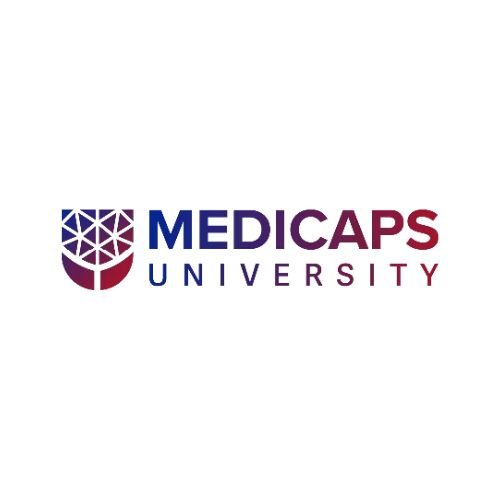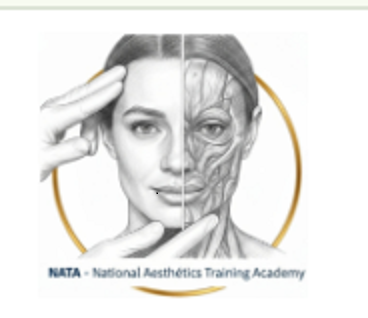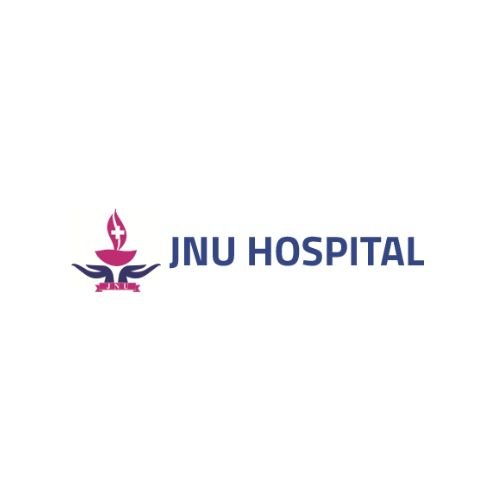NURS FPX 8006 Assessment 1: Building the Foundation for Quality and Safety in Nursing Practice
usa
Educational
+9114386196141
jecic20164@gddcorp.com
Added on 29 Sep 2025
Business Description
NURS FPX 8006 Assessment 1: Building the Foundation for Quality and Safety in Nursing Practice
NURS FPX 8006 Assessment 1 serves as an essential starting point for graduate nursing students who are stepping into the advanced exploration of quality improvement, patient safety, and evidence-based practice. This first assessment lays the groundwork for critical thinking, professional reflection, and the development of strategies that nurses can apply to address the challenges of modern healthcare. By focusing on the principles of quality and safety, this assessment emphasizes the role of the nurse as a change agent in improving outcomes and ensuring that care delivery aligns with the highest standards of practice. Through this exercise NURS FPX 8006 Assessment 1, students begin to connect their professional experiences with academic learning, preparing them for deeper engagement with nursing leadership and quality initiatives throughout the course.
The foundation of NURS FPX 8006 Assessment 1 is built on the recognition that quality improvement is central to nursing practice. In healthcare systems characterized by complexity, limited resources, and diverse patient populations, ensuring quality and safety cannot be left to chance. Nurses are at the frontline of patient care, where they directly observe inefficiencies, risks, and opportunities for improvement. This assessment encourages students to examine their own practice environments and reflect on how systemic issues affect patient safety and care delivery. For example, a nurse working in an emergency department may identify overcrowding as a factor that increases the risk of medication errors or delays in treatment. By analyzing these situations, students begin to understand how data, evidence, and systematic approaches are necessary to drive sustainable improvements.
Patient safety is another critical theme in this assessment. The Institute of Medicine’s landmark report, To Err Is Human, brought global attention to the prevalence of preventable medical errors, positioning safety as a priority for healthcare organizations. NURS FPX 8006 Assessment 1 asks students to reflect on their own experiences with safety-related incidents or near misses and to evaluate the systems in place to prevent harm. For instance, falls, infections, or communication breakdowns during shift changes are common issues that nurses encounter. By critically analyzing the contributing factors to these problems, students begin to see that safety requires a culture of accountability, transparency, and teamwork. This reflection is valuable because it helps nurses transition from seeing errors as individual failings to understanding them as system-level challenges that require collective solutions.
A central pillar of this assessment is evidence-based practice (EBP). Evidence-based practice integrates the best available research evidence, clinical expertise, and patient preferences to guide nursing decisions. NURS FPX 8006 Assessment 1 provides an opportunity for students to evaluate how effectively their organizations implement EBP in daily practice. In many cases NURS FPX 8006 Assessment 2, gaps exist due to lack of time, resources, or organizational support. For example, while evidence may support the use of certain protocols for infection prevention, a nurse may observe inconsistencies in how staff adhere to these practices. By reflecting on such challenges, students are encouraged to identify strategies for promoting EBP, such as staff education, leadership advocacy, or use of clinical guidelines. This connection between evidence and practice reinforces the idea that nursing is both a science and an art, requiring the integration of research and compassionate care.
Quality improvement models and frameworks are also introduced in this assessment. Students often explore methods such as the Plan-Do-Study-Act (PDSA) cycle, Six Sigma, or Lean methodologies, which provide systematic approaches for testing and refining interventions. These models demonstrate that quality improvement is not about isolated fixes but about structured, iterative processes that engage teams in continuous learning. For example, a nurse may use the PDSA cycle to implement and evaluate a new bedside handoff process designed to improve communication during shift changes. By learning about these tools, students begin to see themselves as active participants in innovation and systems change, rather than passive observers.
Interprofessional collaboration is emphasized throughout the course and is foundational to NURS FPX 8006 Assessment 1. Quality improvement cannot be achieved in silos; it requires the collective expertise and cooperation of nurses, physicians, pharmacists, administrators, and other healthcare professionals. This assessment encourages students to reflect on the importance of teamwork and effective communication in driving safe and efficient care. For instance, conducting interdisciplinary rounds can reduce care fragmentation and improve patient outcomes. By emphasizing collaboration, students begin to appreciate their role in building trust and promoting shared responsibility for patient safety.
An important component of this assessment is also the ethical dimension of quality improvement. Nurses are bound by ethical principles, including beneficence, nonmaleficence, and justice, which require them to advocate for safe and equitable care. NURS FPX 8006 Assessment 1 prompts students to think about how ethics intersect with quality improvement. For example, if certain populations consistently experience poorer outcomes due to systemic inequities, it becomes an ethical obligation to address those disparities. Similarly, transparency in reporting errors or adverse events reflects the ethical principle of honesty and respect for patients. This ethical lens reinforces the moral responsibility of nurses to advance safety and equity through quality improvement initiatives.
The role of data and measurement is also central to this assessment. Effective quality improvement depends on the ability to collect, analyze, and interpret data to monitor performance and guide interventions. NURS FPX 8006 Assessment 1 challenges students to think about the types of data they encounter in practice, such as infection rates, readmission rates, or patient satisfaction scores NURS FPX 8006 Assessment 3, and to consider how these measures can inform change. By developing skills in data analysis, students build credibility as leaders who can use evidence to advocate for system-level improvements. This approach shifts quality improvement from anecdotal observation to objective, measurable action.
Leadership is another critical theme woven into this assessment. Nurses at all levels are leaders when it comes to quality and safety, regardless of their formal titles. NURS FPX 8006 Assessment 1 encourages students to reflect on their leadership potential and to consider how they can inspire change within their organizations. Leadership in this context means not only guiding others but also modeling accountability, resilience, and commitment to lifelong learning. It also involves advocating for resources, policies, and practices that support a culture of safety. By recognizing their leadership role, students begin to embrace the idea that they are key contributors to healthcare transformation.
Finally, this assessment highlights the importance of lifelong learning and adaptability in nursing practice. The healthcare environment is dynamic, shaped by advances in technology, changes in policy, and emerging health challenges. NURS FPX 8006 Assessment 1 reinforces the idea that quality improvement is not a one-time activity but a continuous process that requires nurses to remain engaged and flexible. By cultivating a mindset of lifelong learning, nurses can ensure that their practice evolves to meet the changing needs of patients and communities.
In conclusion, NURS FPX 8006 Assessment 1 provides a strong foundation for understanding the principles of quality improvement, patient safety, and evidence-based practice. Through reflection on personal experiences NURS FPX 8006 Assessment 4, analysis of practice environments, and exploration of models and frameworks, students begin to see themselves as active participants in shaping safer and more effective healthcare systems. The assessment emphasizes the interconnected themes of ethics, collaboration, data, leadership, and lifelong learning, all of which are critical to success in advanced nursing practice. Ultimately, NURS FPX 8006 Assessment 1 serves as a launching point for students to engage deeply with the concepts of quality and safety, preparing them to become leaders and innovators who will advance the future of nursing and healthcare.
Frequently Asked Questions
➤ What services does NURS FPX 8006 Assessment 1: Building the Foundation for Quality and Safety in Nursing Practice offer?
NURS FPX 8006 Assessment 1: Building the Foundation for Quality and Safety in Nursing Practice provides professional Educational services for customers in usa, . They focus on delivering quality solutions tailored to client needs.
➤ Where is NURS FPX 8006 Assessment 1: Building the Foundation for Quality and Safety in Nursing Practice located?
This business is located in usa, , making it a convenient choice for local customers looking for reliable Educational services.
➤ How can I contact NURS FPX 8006 Assessment 1: Building the Foundation for Quality and Safety in Nursing Practice?
You can contact NURS FPX 8006 Assessment 1: Building the Foundation for Quality and Safety in Nursing Practice via phone or email listed on this page to learn more about their services and availability.
➤ Why choose NURS FPX 8006 Assessment 1: Building the Foundation for Quality and Safety in Nursing Practice over other Educational providers?
NURS FPX 8006 Assessment 1: Building the Foundation for Quality and Safety in Nursing Practice is known for professionalism, customer satisfaction, and dependable service, making it a trusted choice for Educational needs in usa.
Services Offered by NURS FPX 8006 Assessment 1: Building the Foundation for Quality and Safety in Nursing Practice
NURS FPX 8006 Assessment 1: Building the Foundation for Quality and Safety in Nursing Practice provides a range of Educational services designed to meet customer needs efficiently. Their services are tailored for individuals and businesses seeking reliable and professional support.
- Professional Educational consultation
- Customer-focused service approach
- Affordable and transparent pricing
- Timely project delivery
Business Hours
This business typically operates during standard working hours. Customers are encouraged to contact the business directly to confirm current availability and service timings.
Customer Support
NURS FPX 8006 Assessment 1: Building the Foundation for Quality and Safety in Nursing Practice values customer satisfaction and provides dedicated support to address inquiries and service requests. Their team ensures a smooth experience from initial contact to service completion.
Local usa Business Information
NURS FPX 8006 Assessment 1: Building the Foundation for Quality and Safety in Nursing Practice proudly serves customers in usa, . As a local business, it understands the needs of the community and provides services that align with regional requirements.











